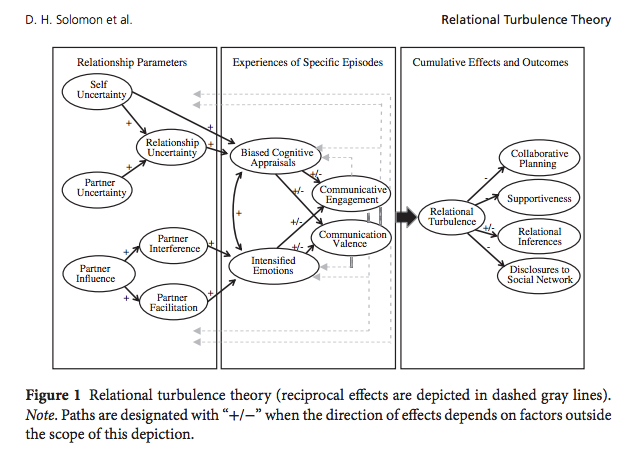5.5 Relational Turbulence Theory
Relationship progresses in two ways
Qualitative change perspective: sudden tranformational change
Quantitative change perspective: incremental shifts
causes of relational turbulence during times of transition
relational uncertainty ,from emotion-in-relationships model, refers to “degree of confidence (or lack of confidence) that individuals have in their judgments about the nature of their relationship.” (L. Baxter and Braithwaite 2008.pp521)
Consists of
Self uncertainty
Partner uncertainty
Relationship uncertainty
Interference from partners: from emotion-in-relationships model, consists of
Inference from partners
Facilitation from partners
Under relational turbulence, people use both avoidant and aggressive messages (L. Baxter and Braithwaite 2008.pp523). It changes the message processing and message production mechanisms.
This theory can be applied to a broad range of contexts from couples, parents, military personnel, etc.
Applications:
